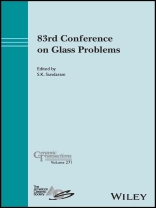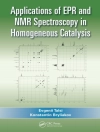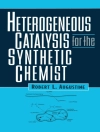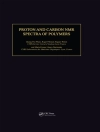The 83rd Conference on Glass Problems (GPC) was organized by the Kazuo Inamori School of Engineering, The New York State College of Ceramics, Alfred University, NY, and The Glass Manufacturing Industry Council (GMIC), Westerville, OH. The Program Director was S. K. Sundaram, Inamori Professor of Materials Science and Engineering, Kazuo Inamori School of Engineering, The New York State College of Ceramics, Alfred University, Alfred, NY. The Conference Director was Bob Lipetz, Executive Director, GMIC, Westerville, OH. The GPC Advisory Board (AB) included the Program Director, the Conference Director, and several industry representatives. The Board assembled the technical program. Donna Banks of the GMIC coordinated the events and provided support. It started with a full-day plenary session followed by technical sessions.
Spis treści
Foreword vii
Preface ix
Acknowledgements xi
Plenary 1
Evolution of Refractory in the Glass Industry 3
Stefan Postrach and Ignacio Ramirez
How Big Is My Carbon Footprint…Revisited 15
Christopher J. Hoyle
Glass Melting of the Future 23
H. P. H. Muijsenberg, Hans Mahrenholtz, G. Neff, S. Hakes, C. Jatzwauk, and A. Birle
Quality 43
Digital Measurement of Cord Stresses in Container Glass 45
Henning Katte
The Electrical Systems Will Become the Gas Skits of the Future 59
René Meuleman and Christian Collombet
Melting And Control 61
All-Electric-Forehearth Design with Zero Emissions 63
Christoph Jatzwauk, Stuart Hakes, and Hans Mahrenholtz
The Fully Compartmentalized Glass Furnace 69
Adam Polcyn
5-Year Operating Experience with the Optimelt(TM) Heat Recovery Technology on a Tableware Furnace 79
M. van Valburg, H. Kobayashi, and A. Aluri
Modern Controller and Sensor Technology to Achieve Optimum Energy Efficiency 87
Andries Habraken, Sjoerd Stelwagen, and Rui Carneiro
Refractories and Raw Materials 95
How Will the Electrification of Glass Furnaces Impact Refractories? 97
Isabelle Cabodi, Isabell Gross, Pierrick Vespa, Michel Gaubil, and Stephane Schaller
Future-Proofing Your Dust Collection System Best Practices in Dust Collection for the Glass Industry 105
Alysha Yinger and Kyle Billie
Combustion and Sustainability 111
Partial Oxy-Fuel Conversion of Glass Forehearths: A Cost-Effective Way to Reduce CO2 Emissions by 50% 113
J. Pedel, G. Kulkarni, S. Vijayan, and R. Nath
Advances in Glass Industry Energy Savings using Heat Oxycombustion 119
James Mc Andrew, Kenneth Kaiser, Bhupesh Dhungel, Jiefu Ma, Chendhil Periasamy, Rémi Tsiava, Abou Ba, Mohand Amirat, Niomar Marcano, Xavier Paubel, Tâm Lâm, Luc Jarry, Emre Dumankaya, Nes¸et Arzan, Bahtiyar Dalgiç, and Erdinc¸ S¸ükrü
Blue and Green Hydrogen Production, Distribution, and Supply for the Glass Industry and the Potential Impact of Hydrogen Fuel Blending in Glass Furnaces 127
Michael J. Gallagher, Ashwin Vinod, and Roger A. Dewing
Design and Implementation of Optifire(TM) Flex Burner for Foam Reduction in Oxy-Fuel Glass Furnaces 137
Robert L. Bell, Geert Cnossen, Robert Miller, Gaurav Kulkarni, and Hisashi Kobayashi












